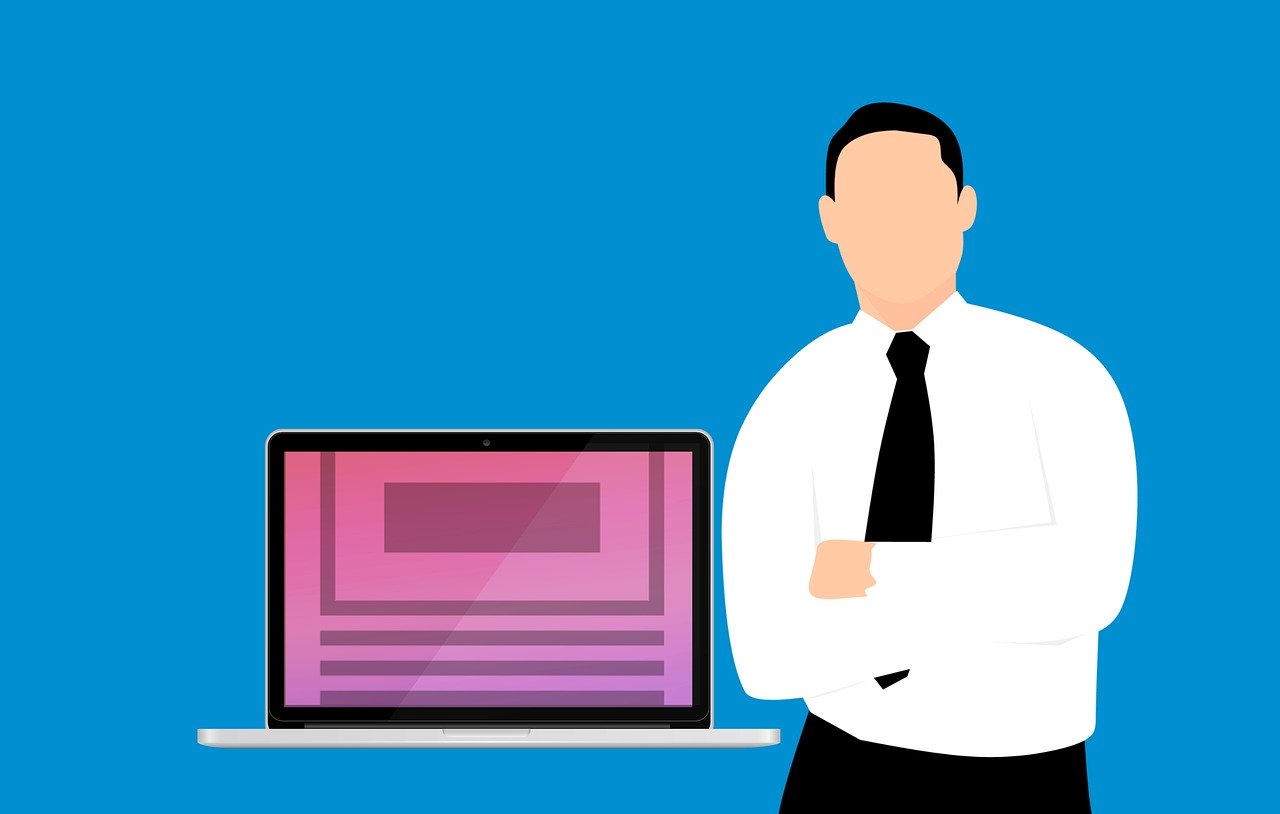Business
Pros and Cons of Becoming a Freelance Copywriter in 2020

Have you ever noticed how many of your friends started working from home? Just stop for a minute and think about how much you are missing if you have to spend 8 hours in the office. Imagine how different your life would be if you could manage your time and decide when you will work on your own. Nowadays, it is possible.
The world has moved online, and so should you. The Internet, with all its opportunities, provides you with the freedom that you surely miss in the office. You can finally have time to be with your family or read an interesting book while working in a convenient regime and making good money.
Copywriting and academic writing are the number one choices of freelance occupations among youth today. Cooperating with a custom dissertation writing service or a freelance platform attracts people because they can choose their working hours and even the topics they would want to work on.
If you still think that there are some constraints for becoming a freelance copywriter in 2020, let’s discuss the pros and cons of this idea in greater depth.
Advantages
The best idea is to start coucopynting benefits associated with freelance copywriting at websites like EssayService.com or other similar platforms. Here is why.
Freedom and Time
As a freelance copywriter, you are not bound by any office hours. You can work whenever you feel like doing so.
Moreover, freelance employment provides you with an opportunity to choose what you want to work on. This diversity and the absence of constraints expands your freedom.
There is no boss who can make you work late hours or whose ideas you should follow. In this field, you are your own boss who makes all the choices.
Geographical Diversity
Have you ever dreamt of working on the fly? It is possible if you are a freelancer.
You can pick any place in the world and complete your writing assignments from there. The only things you should have are a computer and a proper Internet connection.
And the only thing you should care about is the time difference with your clients.
Industry Growth
With e-commerce growing so fast, more and more niches appear for freelance copywriters. You can complete several online courses and become a technical writer, marketing writer, content writer, or academic writer.
Whatever direction you choose, you will most likely face a fierce competition but also lots of opportunities to succeed. Writers are needed everywhere, and the global penetration of social media only fuels this demand.
Your Own Pricing
Treat your passion for freelance copywriting as a small business venture. It allows you to rate your work the way you think it costs. You can evaluate your skills, compare them to the ones that your competitors have, and set the price that you find reasonable.
Freelance copywriting is sensitive to your rate like no other business. Thus, be reasonable when pricing your texts.

Disadvantages
However, to be fair, some cons that may hinder your success as a freelance copywriter should be mentioned.
Getting Started
The freelance industry is developing and growing at a high pace. Thus, getting started with a freelance career is always a challenge. You need to find clients or even work for free to get a positive review.
Many people give up when they see how hard it is to finally shine your star on the copywriting horizon. However, no matter how difficult it feels, the effort will definitely pay off later.
Work-Life Balance
When you only start your freelance career, you will be definitely troubled with finding the right work-life balance. There will be no office, so your time for rest will be sometimes interrupted with work issues.
At times, you will have to make revisions at an inconvenient time. You will always have to carry your computer with you to manage issues timely and accurately.
Also, you will need to track your emails and respond to every notification because failure to do that may cost you a client.
Consistency
It is also possible that your work will not be consistent. Sometimes, you can get several projects at a time that will require you to work extra hours.
However, there will be times when you will not have clients or assignments at all. You will have to learn how to handle such a tough schedule. Eventually, as soon as you have enough clients, such situations will not happen that often.
Final Words
A freelance copywriter career may seem easy, but it is not. It requires discipline, communication skills, and a great desire to learn and develop.
Thus, if you are sure that writing is your ultimate dream, you should give it a shot. Do not be afraid of getting started procedure: every career is difficult at first.
Business
High Volume, High Value: The Business Logic Behind Black Banx’s Growth

In fintech, success no longer hinges on legacy prestige or brick-and-mortar branches—it’s about speed, scale, and precision. Black Banx, under the leadership of founder and CEO Michael Gastauer, has exemplified this model, turning its high-volume approach into high-value results.
The company’s Q1 2025 performance tells the story: $1.6 billion in pre-tax profit, $4.3 billion in revenue, and 9 million new customers added, bringing its total customer base to 78 million across 180+ countries.
But behind the numbers lies a carefully calibrated business model built for exponential growth. Here’s how Black Banx’s strategy of scale is redefining what profitable banking looks like in the digital age.
Scaling at Speed: Why Volume Matters
Unlike traditional banks, which often focus on deepening relationships with a limited set of customers, Black Banx thrives on breadth and transactional frequency. Its digital infrastructure supports onboarding millions of users instantly, with zero physical presence required. Customers can open accounts within minutes and transact across 28 fiat currencies and 2 cryptocurrencies (Bitcoin and Ethereum) from anywhere in the world.
Each customer interaction—whether it’s a cross-border transfer, crypto exchange, or FX transaction—feeds directly into Black Banx’s revenue engine. At scale, these micro-interactions yield macro results.
Real-Time, Global Payments at the Core
One of Black Banx’s most powerful value propositions is real-time cross-border payments. By enabling instant fund transfers across currencies and countries, the platform removes the frictions associated with SWIFT-based systems and legacy banking networks.
This service, used by individuals and businesses alike, generates:
- Volume-based revenue from transaction fees
- Exchange spreads on currency conversion
- Premium service income from business clients managing international payroll or vendor payments
With operations in underserved regions like Africa, South Asia, and Latin America, Black Banx is not only increasing volume—it’s tapping into fast-growing financial ecosystems overlooked by legacy banks.
The Flywheel Effect of Crypto Integration
Crypto capabilities have added another dimension to the company’s high-volume model. As of Q1 2025, 20% of all Black Banx transactions involved cryptocurrency, including:
- Crypto-to-fiat and fiat-to-crypto exchanges
- Crypto deposits and withdrawals
- Payments using Bitcoin or Ethereum
The crypto integration attracts both retail users and blockchain-native businesses, enabling them to:
- Access traditional banking rails
- Convert assets seamlessly
- Operate with lower transaction fees than those found in standard financial systems
By being one of the few regulated platforms offering full banking and crypto support, Black Banx is monetizing the convergence of two financial worlds.
Optimized for Operational Efficiency
High volume is only profitable when costs are contained—and Black Banx has engineered its operations to be lean from day one. With a cost-to-income ratio of just 63% in Q1 2025, it operates significantly more efficiently than most global banks.
Key enablers of this cost efficiency include:
- AI-driven compliance and customer support
- Cloud-native architecture
- Automated onboarding and KYC processes
- Digital-only servicing without expensive physical infrastructure
The outcome is a platform that not only scales, but does so without sacrificing margin—each new customer contributes to profit rather than diluting it.
Business Clients: The Value Multiplier
While Black Banx’s massive customer base is largely consumer-driven, its business clients are high-value accelerators. From SMEs and startups to crypto firms and global freelancers, businesses use Black Banx for:
- International transactions
- Multi-currency payroll
- Crypto-fiat settlements
- Supplier payments and invoicing
These clients tend to:
- Transact more frequently
- Use a broader range of services
- Generate significantly higher revenue per user
Moreover, Black Banx’s API integrations and tailored enterprise solutions lock in these clients for the long term, reinforcing predictable and scalable growth.
Monetizing the Ecosystem, Not Just the Account
The genius of Black Banx’s model is that it monetizes not just accounts, but entire customer journeys. A user might:
- Onboard in minutes
- Deposit funds from a crypto wallet
- Exchange currencies
- Pay an overseas vendor
- Withdraw to a local bank account
Each of these actions touches a different monetization lever—FX spread, transaction fee, crypto conversion, or premium service charge. With 78 million customers doing variations of this at global scale, the cumulative financial impact becomes immense.
Strategic Expansion, Not Blind Growth
Unlike many fintechs that chase customer acquisition without a clear monetization path, Black Banx aligns its growth with strategic market opportunities. Its expansion into underbanked and high-demand markets ensures that:
- Customer acquisition costs stay low
- Services meet genuine needs (e.g., cross-border income, crypto access)
- Revenue per user grows over time
It’s not just about acquiring more customers—it’s about acquiring the right customers, in the right markets, with the right needs.
The Future Belongs to Scalable Banking
Black Banx’s ability to transform high-volume engagement into high-value profitability is more than just a fintech success—it’s a signal of what the future of banking looks like. In a world where agility, efficiency, and inclusion define competitive advantage, Black Banx has created a blueprint for digital banking dominance.
With $1.6 billion in quarterly profit, nearly 80 million users, and services that span the globe and the blockchain, the company is no longer just scaling—it’s compounding. Each new user, each transaction, and each feature builds upon the last.
This is not the story of a bank growing.
This is the story of a bank accelerating.
-

 Tech4 years ago
Tech4 years agoEffuel Reviews (2021) – Effuel ECO OBD2 Saves Fuel, and Reduce Gas Cost? Effuel Customer Reviews
-

 Tech6 years ago
Tech6 years agoBosch Power Tools India Launches ‘Cordless Matlab Bosch’ Campaign to Demonstrate the Power of Cordless
-

 Lifestyle6 years ago
Lifestyle6 years agoCatholic Cases App brings Church’s Moral Teachings to Androids and iPhones
-

 Lifestyle4 years ago
Lifestyle4 years agoEast Side Hype x Billionaire Boys Club. Hottest New Streetwear Releases in Utah.
-

 Tech7 years ago
Tech7 years agoCloud Buyers & Investors to Profit in the Future
-

 Lifestyle5 years ago
Lifestyle5 years agoThe Midas of Cosmetic Dermatology: Dr. Simon Ourian
-

 Health6 years ago
Health6 years agoCBDistillery Review: Is it a scam?
-

 Entertainment6 years ago
Entertainment6 years agoAvengers Endgame now Available on 123Movies for Download & Streaming for Free
